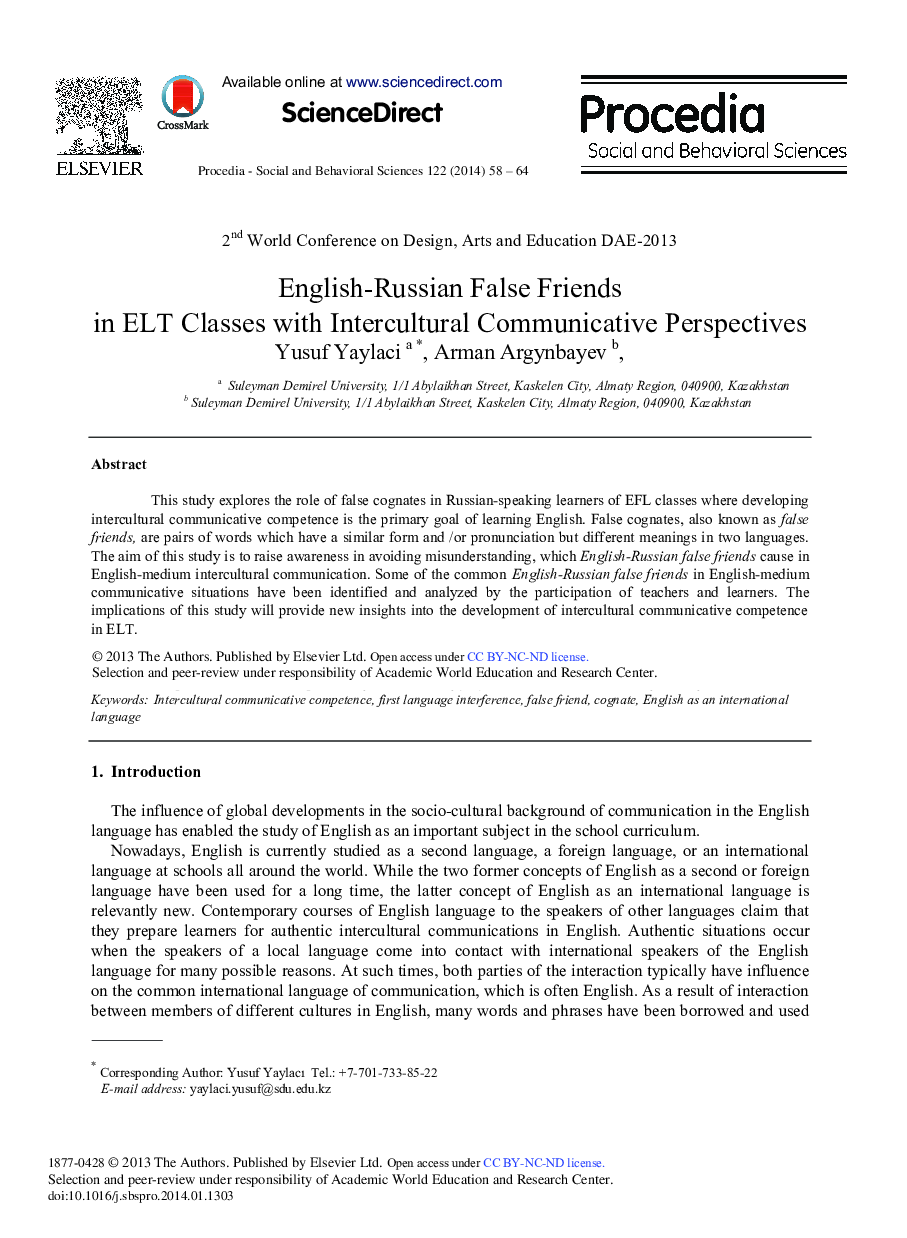| Article ID | Journal | Published Year | Pages | File Type |
|---|---|---|---|---|
| 1114861 | Procedia - Social and Behavioral Sciences | 2014 | 7 Pages |
This study explores the role of false cognates in Russian-speaking learners of EFL classes where developing intercultural communicative competence is the primary goal of learning English. False cognates, also known as false friends, are pairs of words which have a similar form and/or pronunciation but different meanings in two languages. The aim of this study is to raise awareness in avoiding misunderstanding, which English-Russian false friends cause in English-medium intercultural communication. Some of the common English-Russian false friends in English-medium communicative situations have been identified and analyzed by the participation of teachers and learners. The implications of this study will provide new insights into the development of intercultural communicative competence in ELT.
